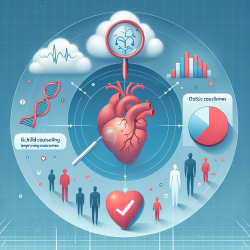Introduction
Sudden cardiac arrest (SCA) and sudden unexplained death (SUD) are tragic events that can have profound effects on families and communities. Recent research, such as the 2020 APHRS/HRS expert consensus statement, provides valuable insights into the investigation of these events and the potential for improving outcomes through data-driven approaches. This blog explores how practitioners can enhance their skills by implementing the outcomes of this research or by engaging in further study.
Understanding the Consensus Statement
The 2020 APHRS/HRS expert consensus statement offers a comprehensive framework for evaluating patients with SCA, decedents with SUD, and their families. It emphasizes the importance of multidisciplinary teams and genetic counseling in managing these cases. The document highlights the need for thorough investigation, including genetic testing, to identify potential inherited conditions that could predispose individuals to cardiac events.
Key Recommendations for Practitioners
- Multidisciplinary Approach: Forming a team with expertise in cardiology, genetics, and counseling is crucial. This team can provide a holistic evaluation and support to affected families.
- Genetic Testing: Genetic testing should be considered in cases of SCA and SUD, particularly when an inherited condition is suspected. This can help identify at-risk family members and guide preventive measures.
- Public Health Priority: The investigation of SUD, especially in young individuals, should be a public health priority. Allocating resources for these investigations can prevent further events in affected families.
- Family Counseling: Genetic counseling is essential for families affected by SCA and SUD. It provides education, emotional support, and guidance on managing potential genetic risks.
Encouraging Further Research
While the consensus statement provides a solid foundation, it also highlights areas where further research is needed. Practitioners are encouraged to contribute to this body of knowledge by conducting studies on the epidemiology of SCA and SUD, the effectiveness of different intervention strategies, and the psychosocial impact on families.
Conclusion
By integrating the recommendations from the 2020 APHRS/HRS expert consensus statement into practice, healthcare providers can improve outcomes for individuals and families affected by SCA and SUD. This approach not only enhances patient care but also contributes to the broader understanding of these complex conditions.
To read the original research paper, please follow this link: 2020 APHRS/HRS expert consensus statement on the investigation of decedents with sudden unexplained death and patients with sudden cardiac arrest, and of their families.










